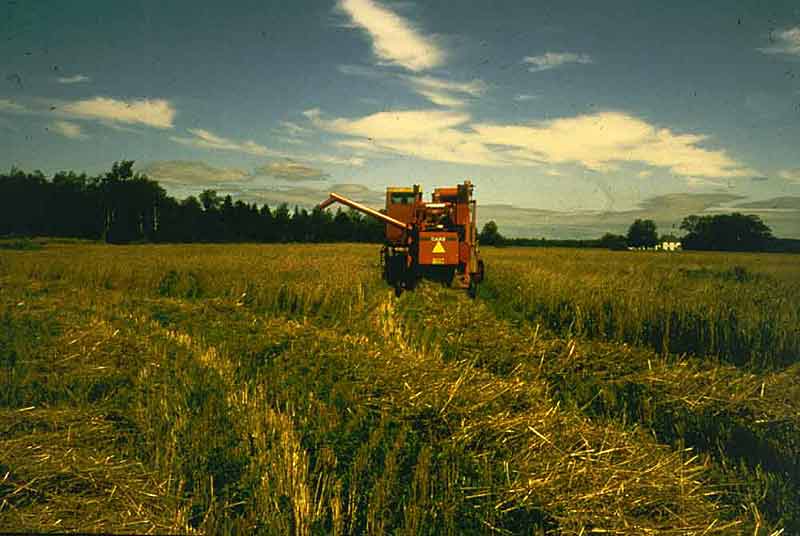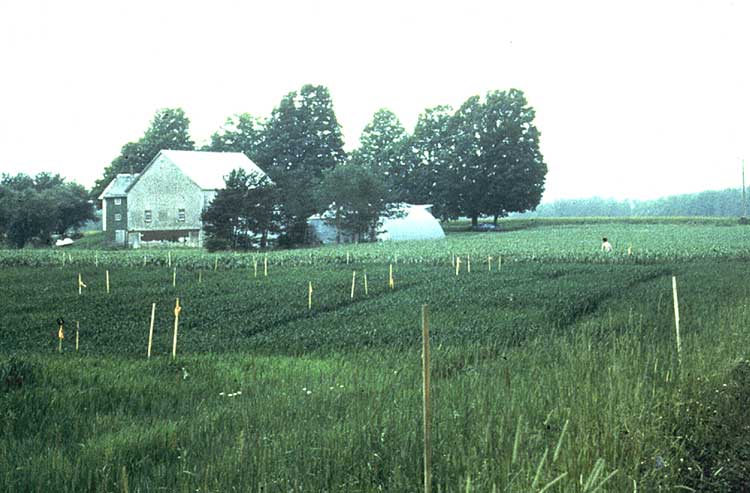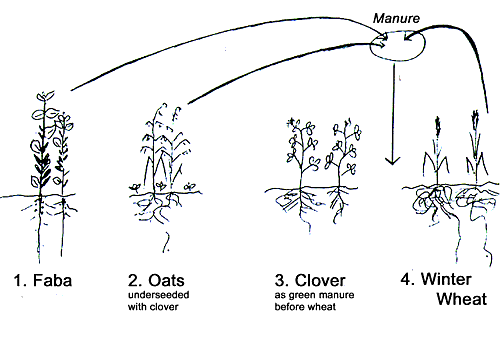Tunwath Farm: an experiment in nitrogen self-sufficiencyThis set of slides describes some of the on-farm research that was conducted between 1977 and 1986 on Tunwath Farm in the Annapolis Valley, Nova Scotia. In 1976, Basil and Lilian Aldhouse made a "cold turkey" conversion of their laying hen-grains farm to organic farming (more commonly referred to at the time as ecological or sustainable farming or biological husbandry). Oat yields tumbled, apparently due to inadequate nitrogen. When I visited the farm in 1977, Basil asked "why should my cereals be nitrogen deficient when I have legumes on a third of the land and I'm recycling manure from the barn?" I thought that was a good question and decided to pursue it. Finding the answer was very much a joint farmer-scientist endeavour that in the end, took seven years. A number of students joined the quest. We spent many hours conversing with Basil & Lilian, documenting the farm practices, helping with chores and sharing meals as well as the joys and frustrations of the journey. Today some of those same students operate their own organic farms. - David P. Slides as web pages (frames format).Slides in PDF file Besides solving the nitrogen enigma, there was lots more that we learned, e.g. about tillage. pests and weeds. See Literature As outlined in the slides, a major impediment to crop production on Tunwath farm turned out to involve soil phytotoxicity following the incorporation of large volumes of crop residues. It was dealt with through appropriate types and timing of tillage operations. Phytoxicity issues are likely a more common limitation in organic systems than in conventional systems, where use of fertilizers, seed protectants and herbicides can compensate for &/+or mask some of the ill-effects of phytotoxicity. Read more . |
   |